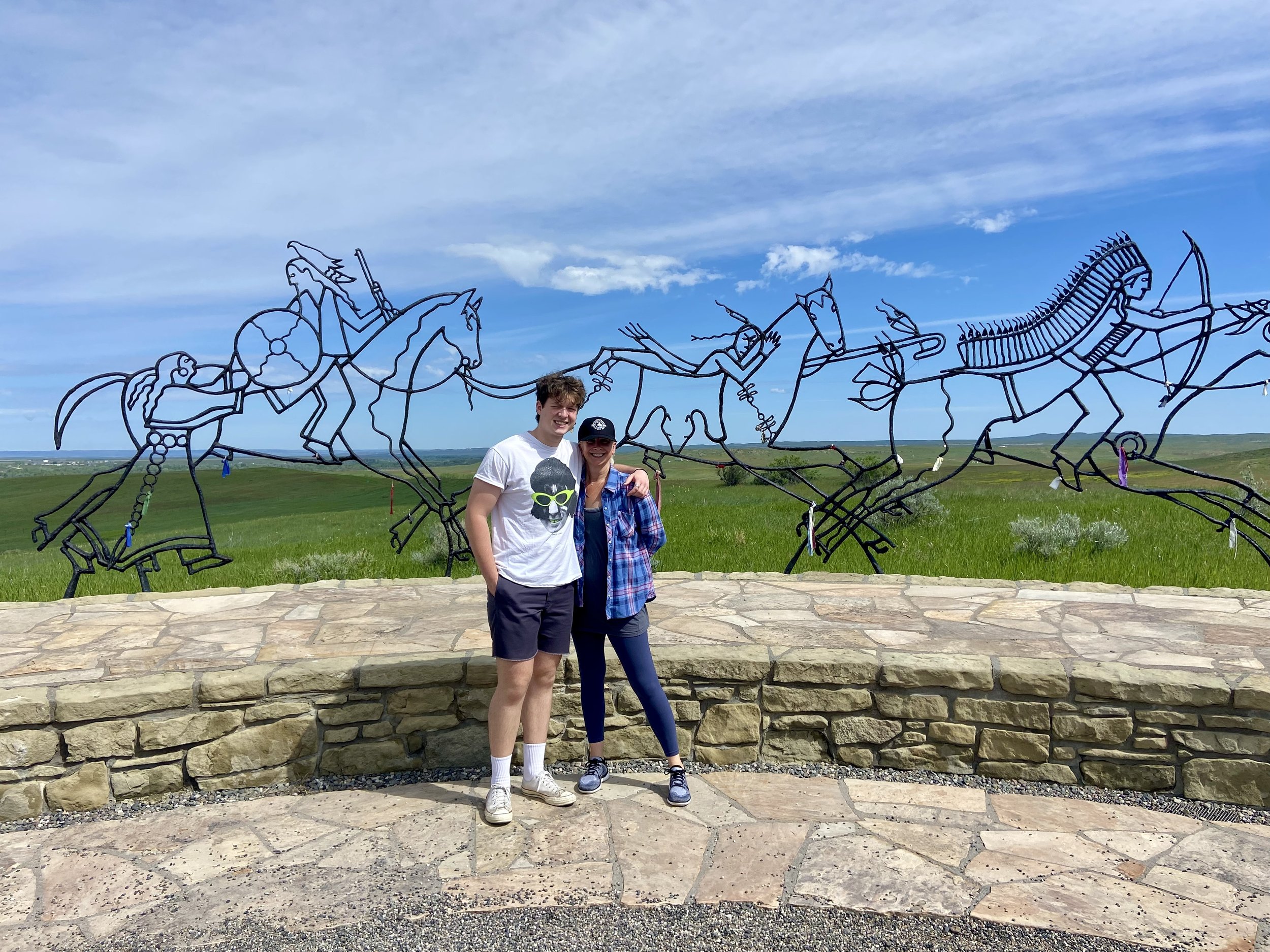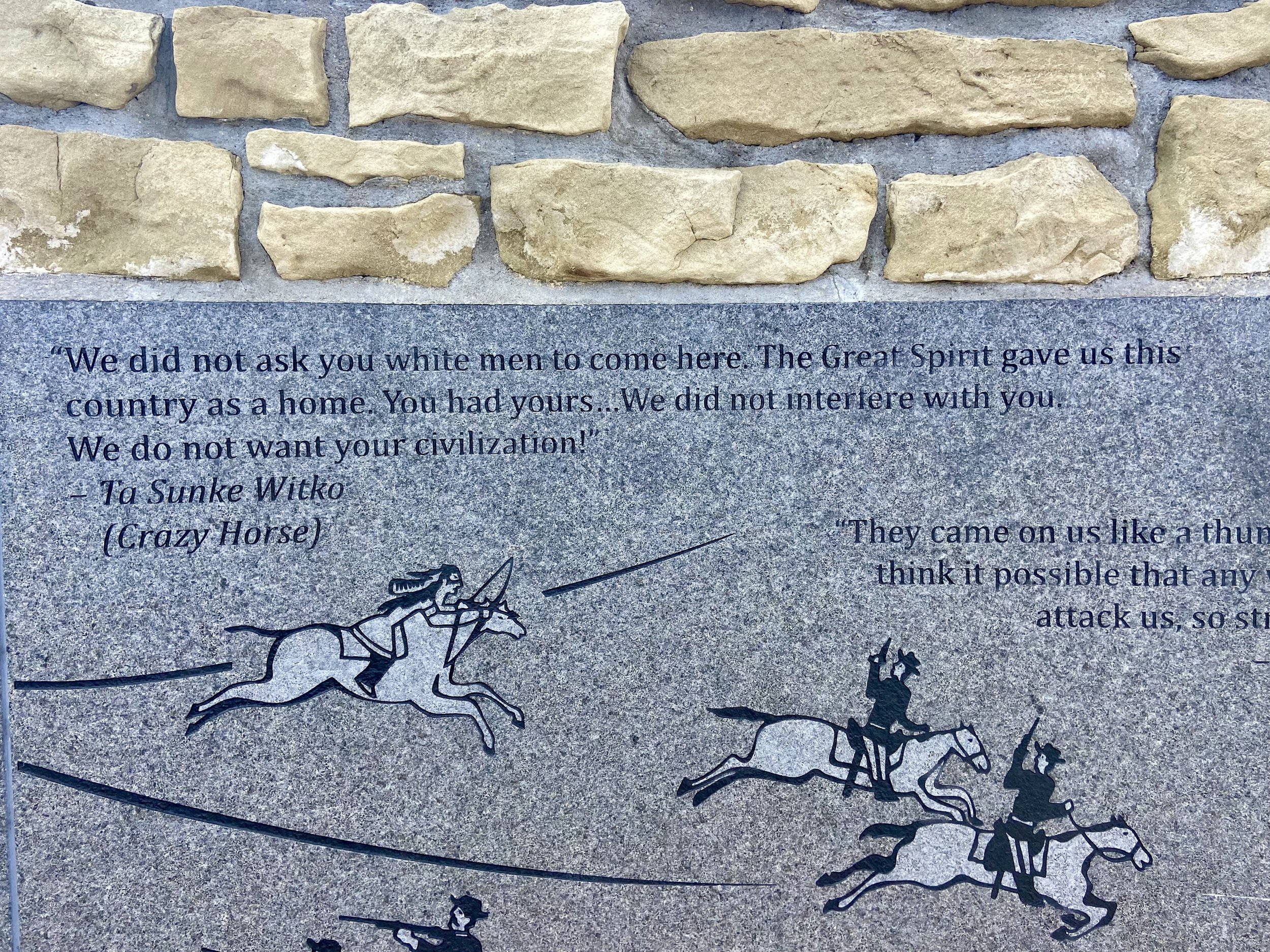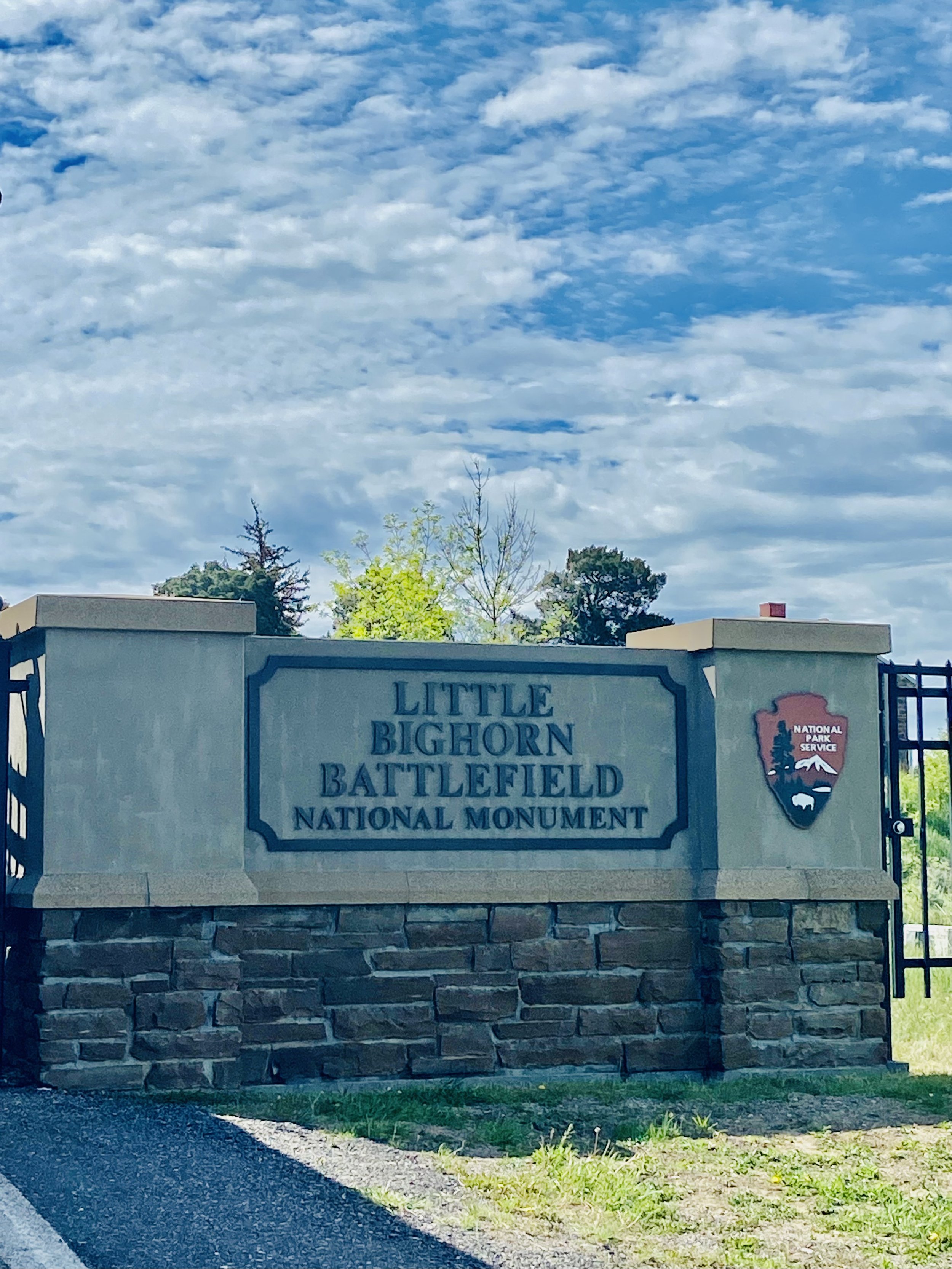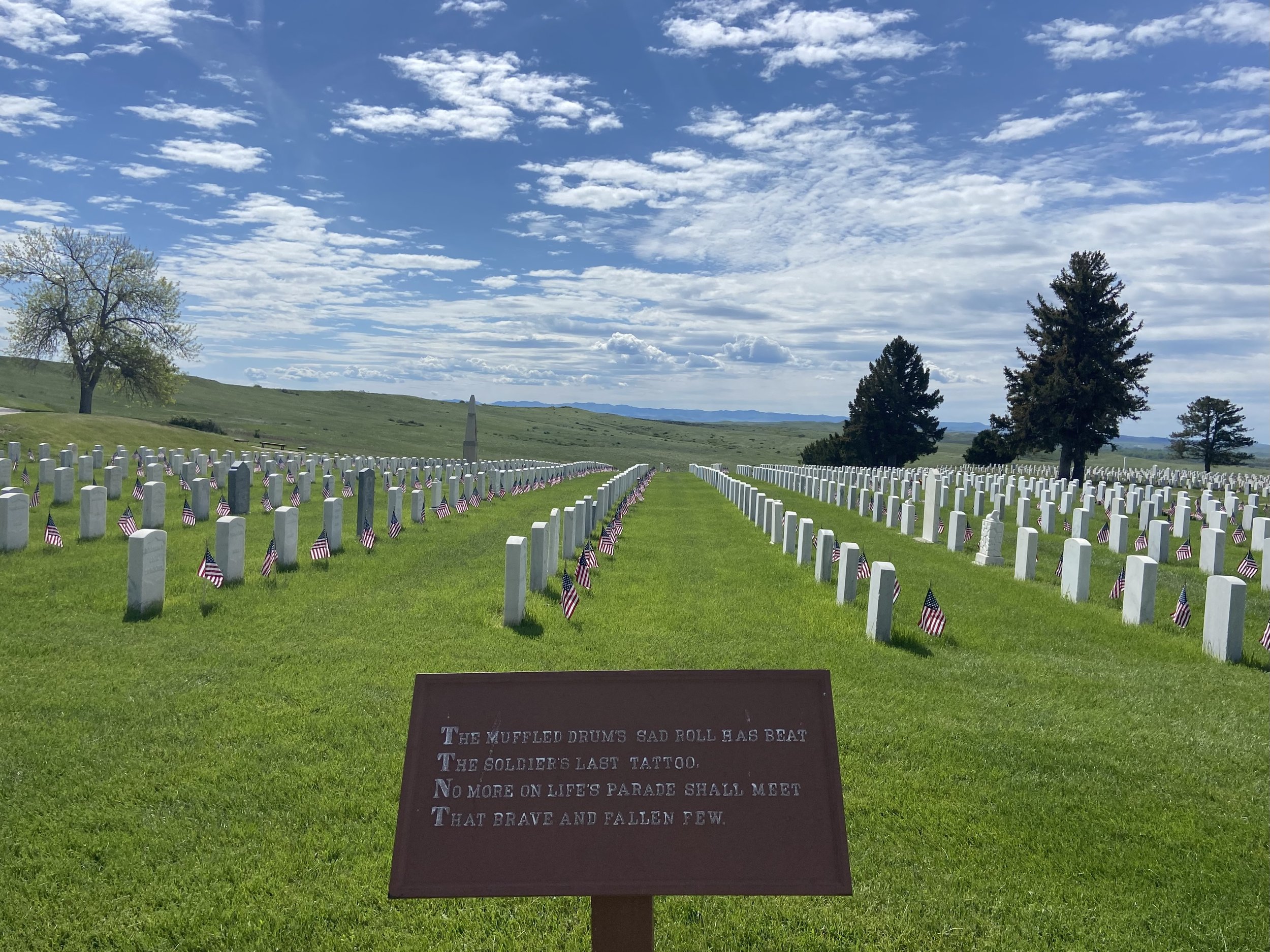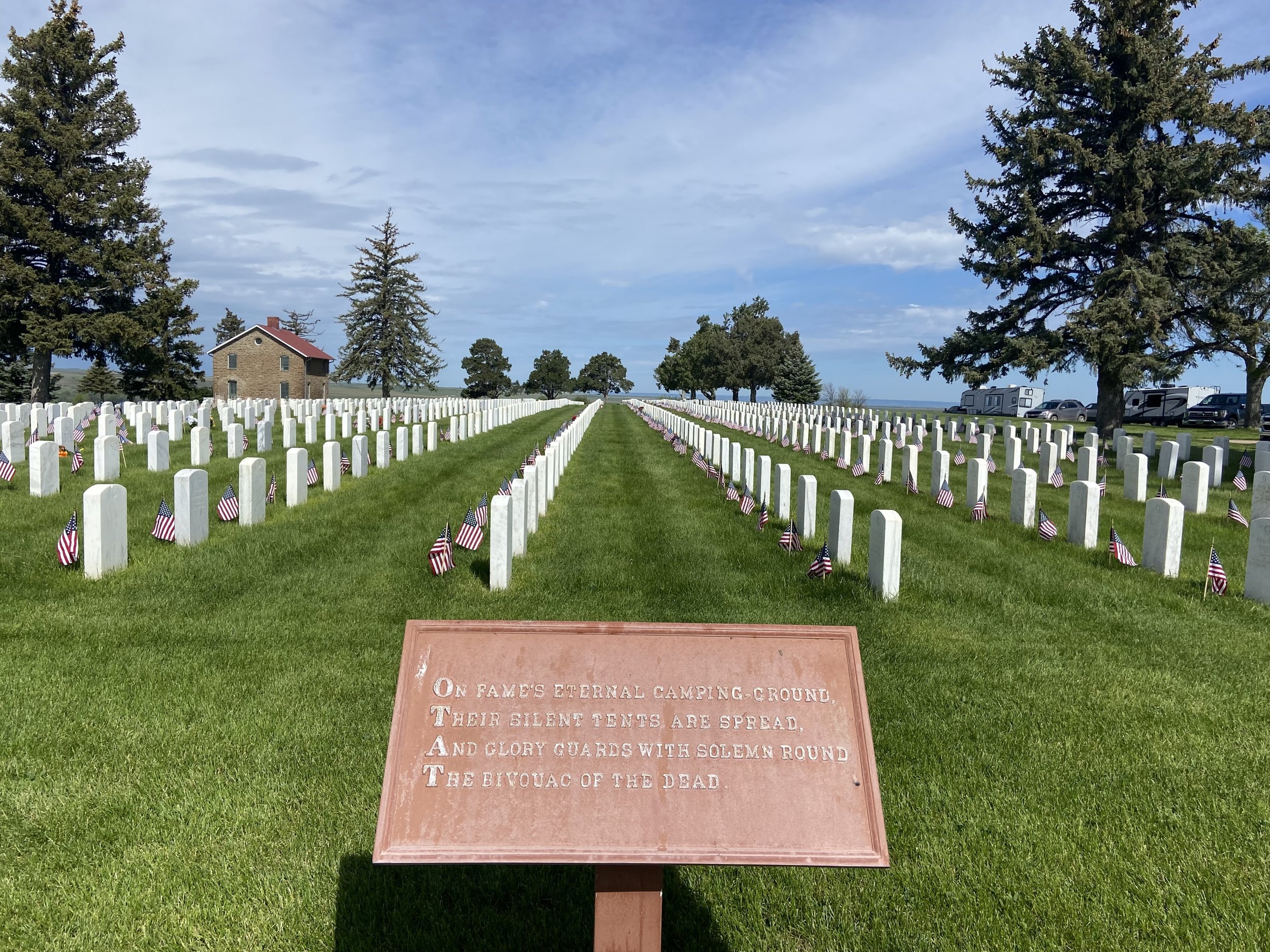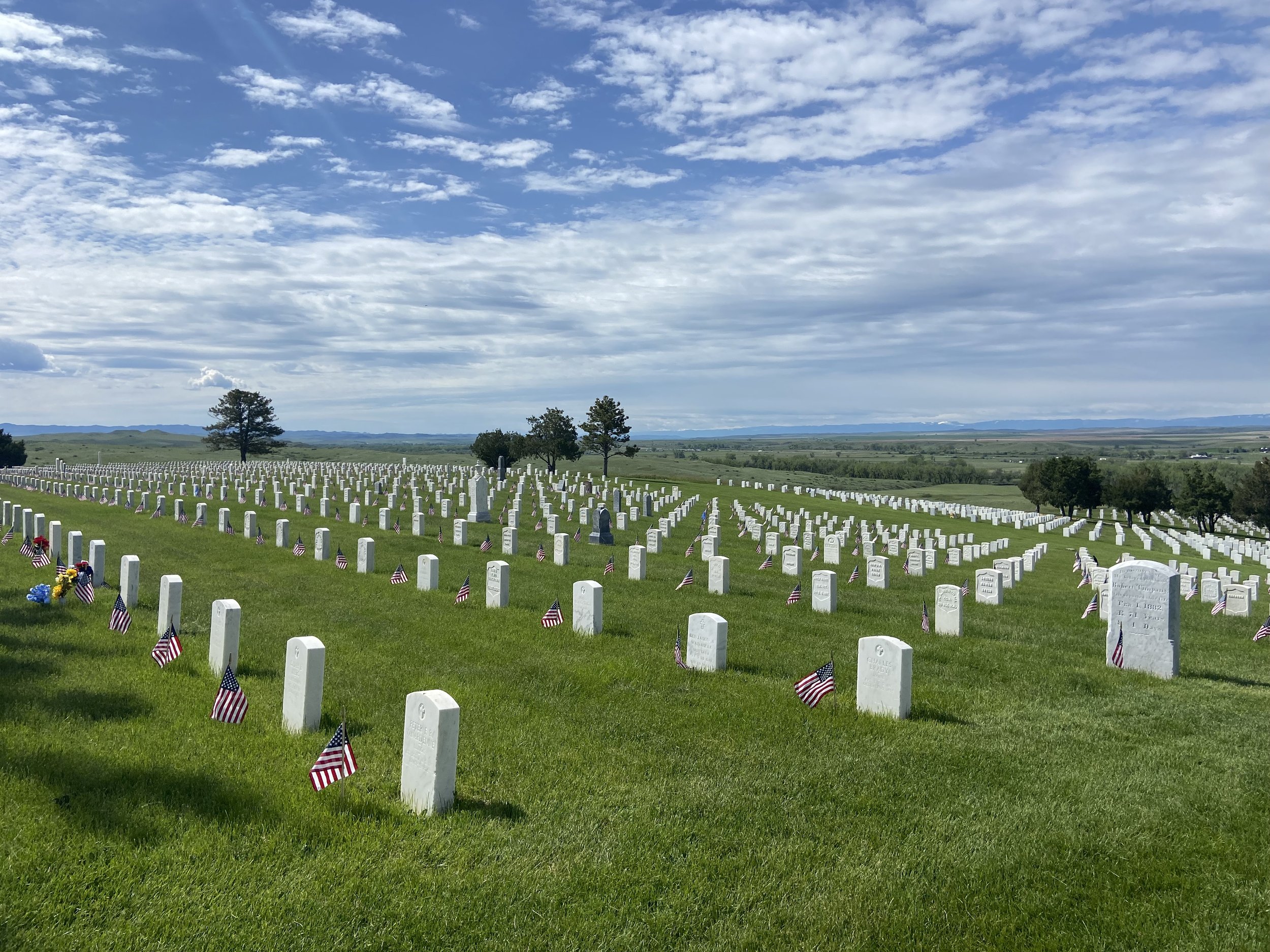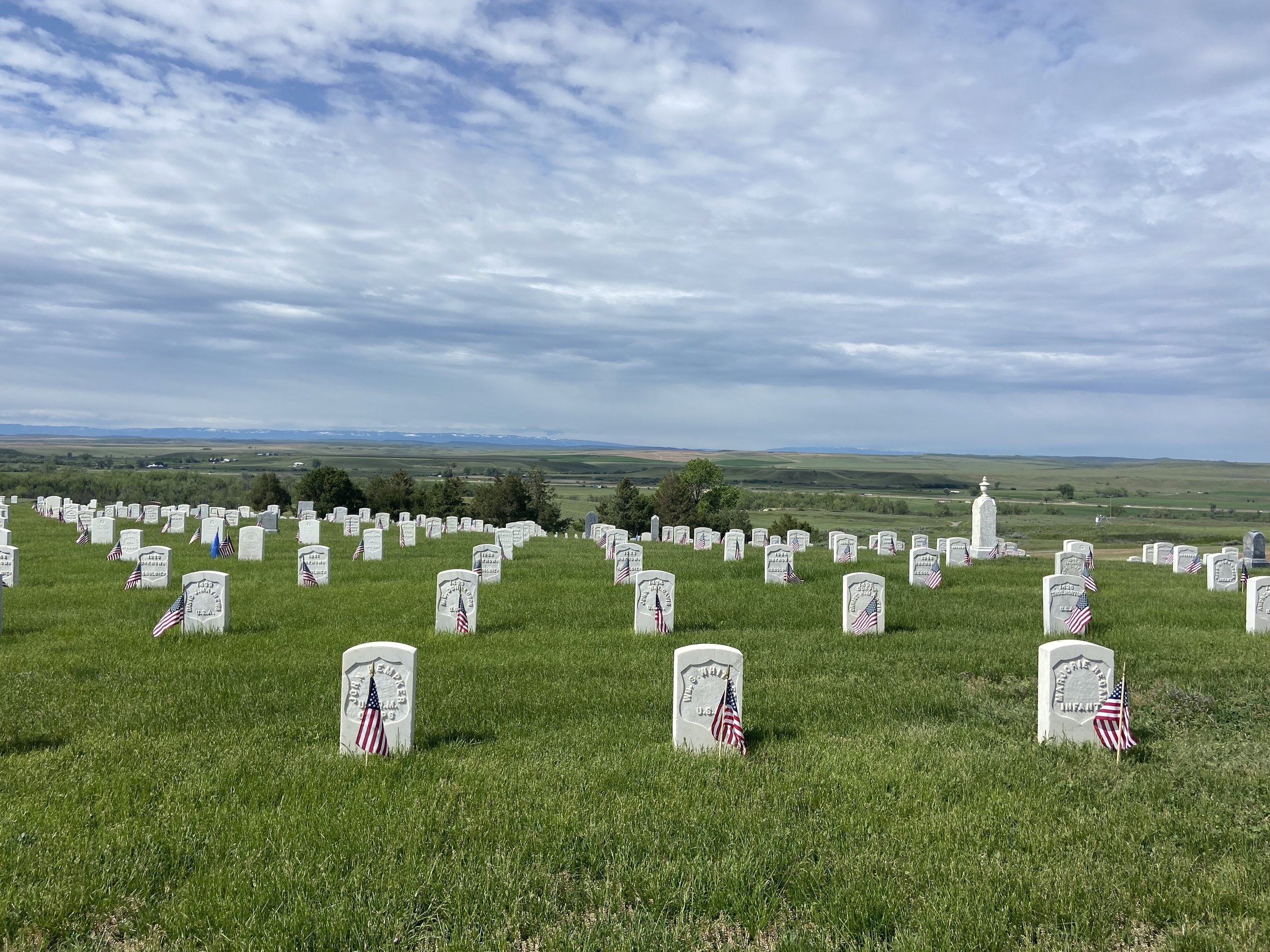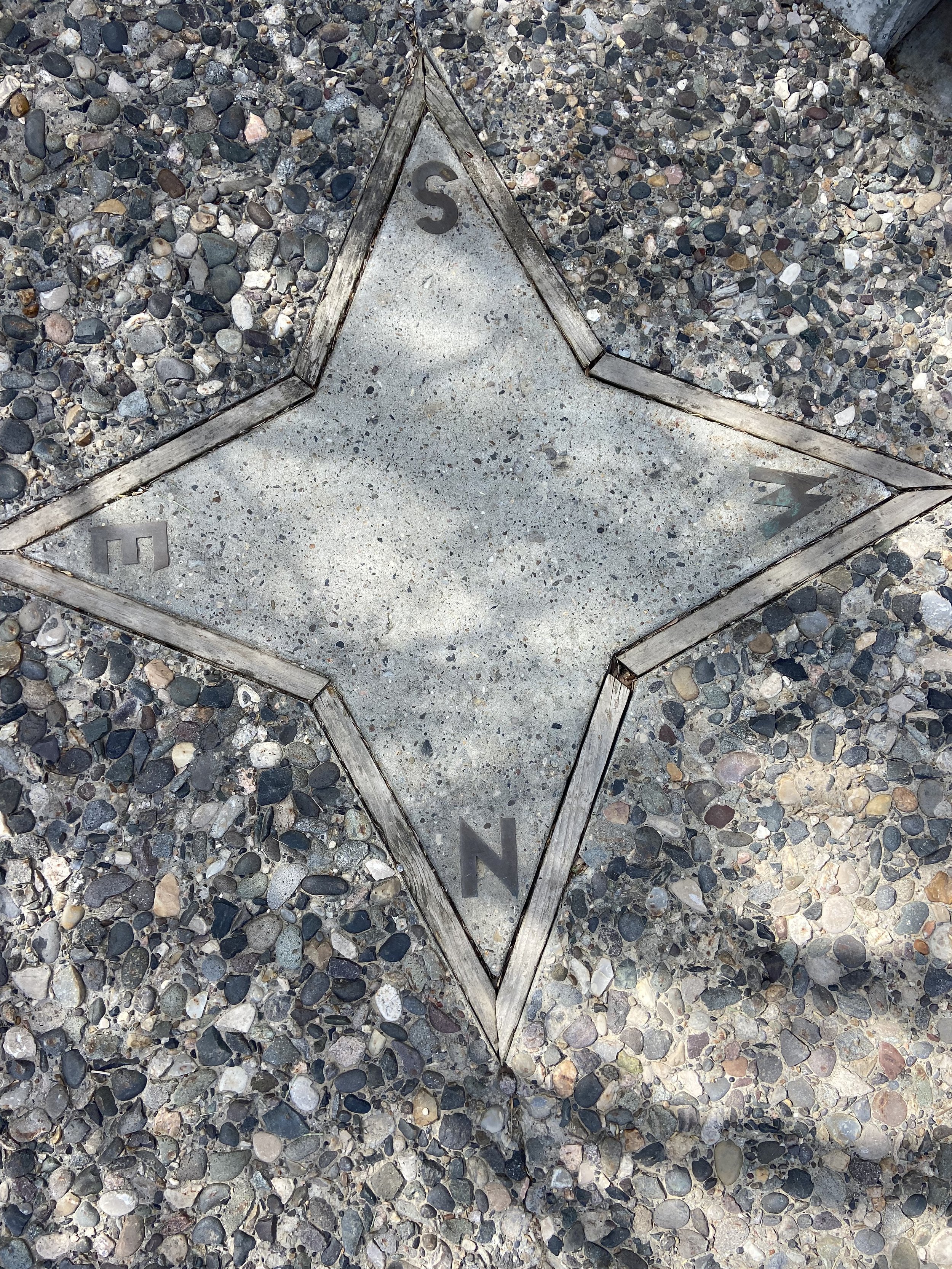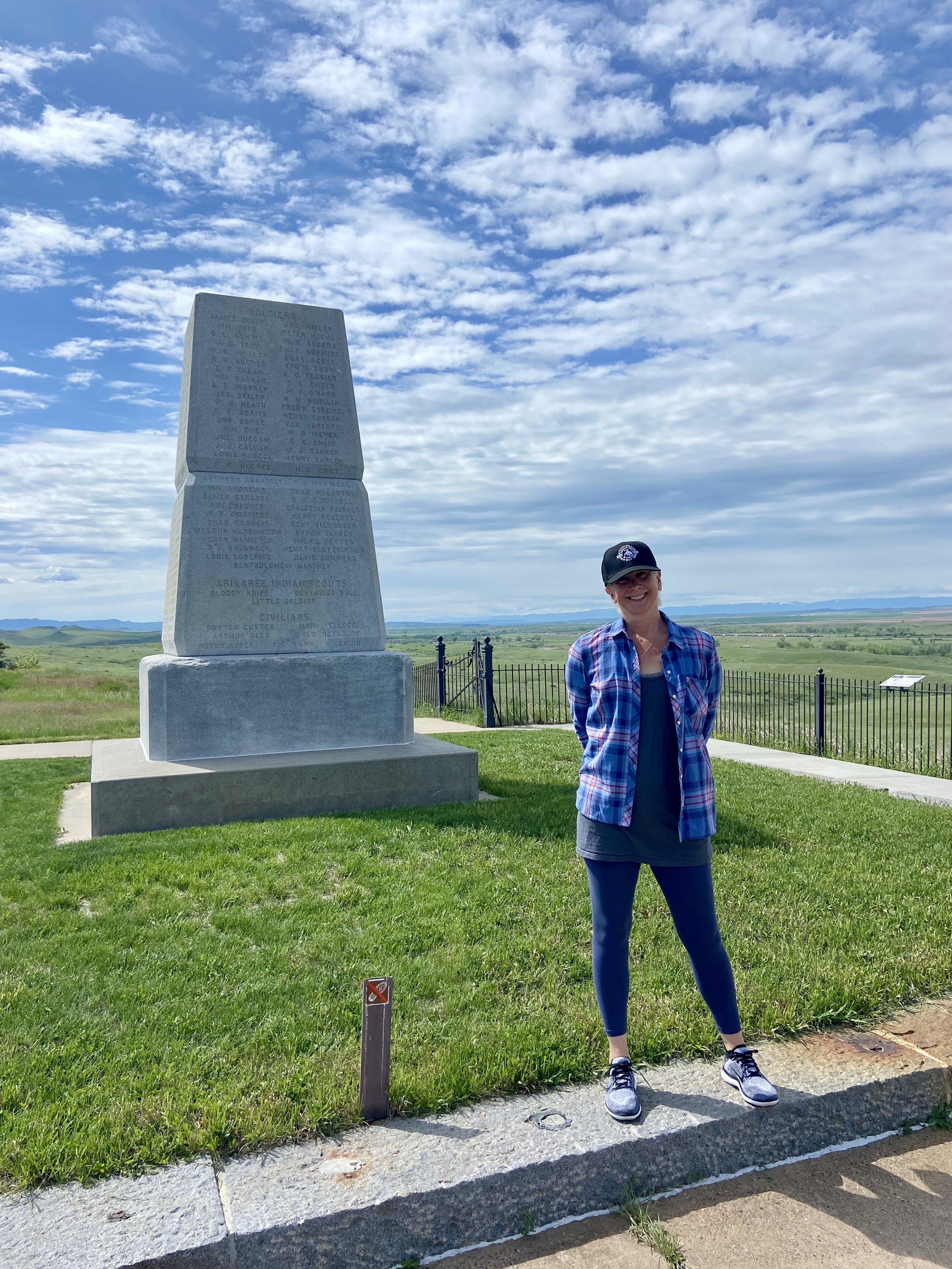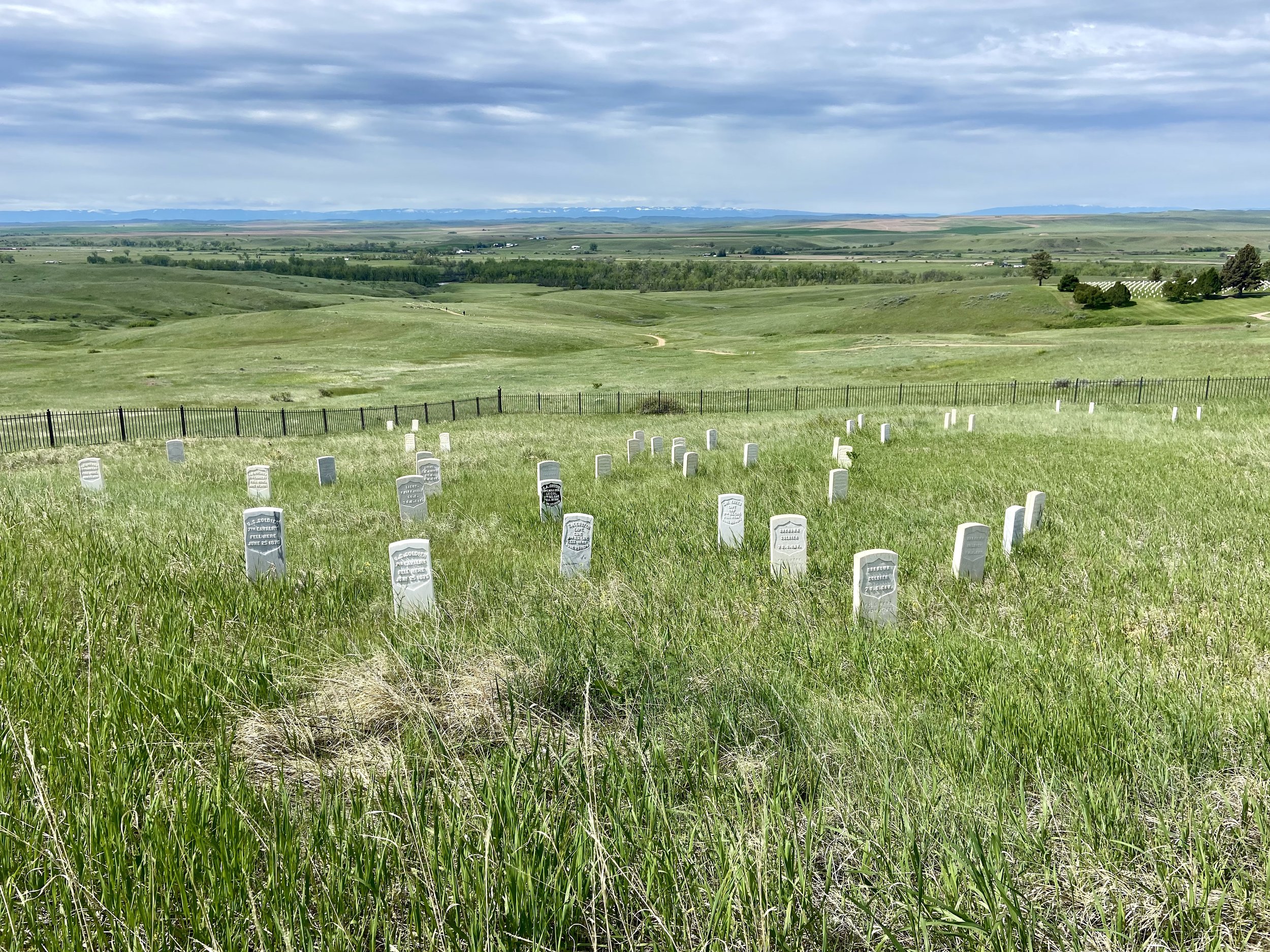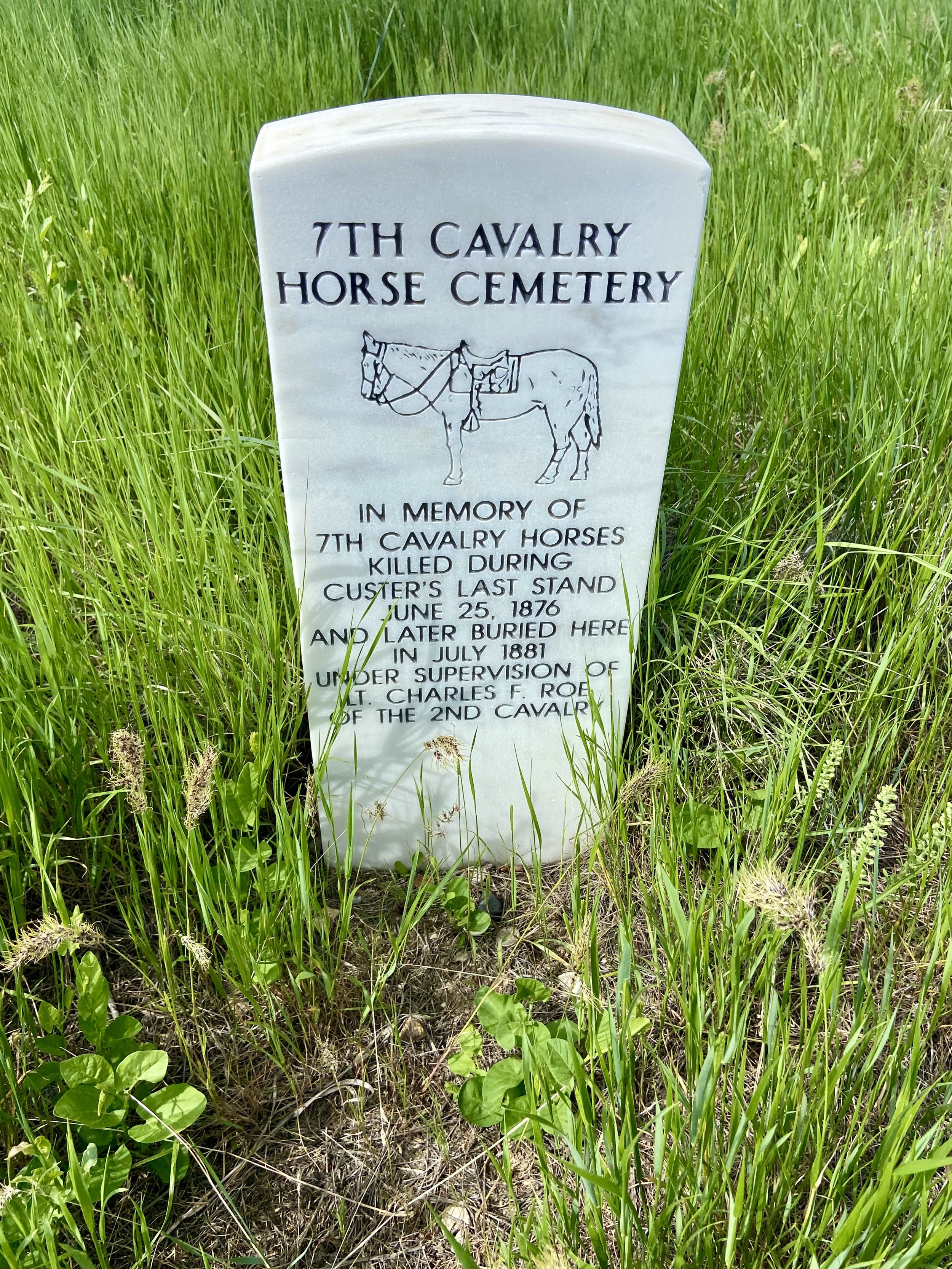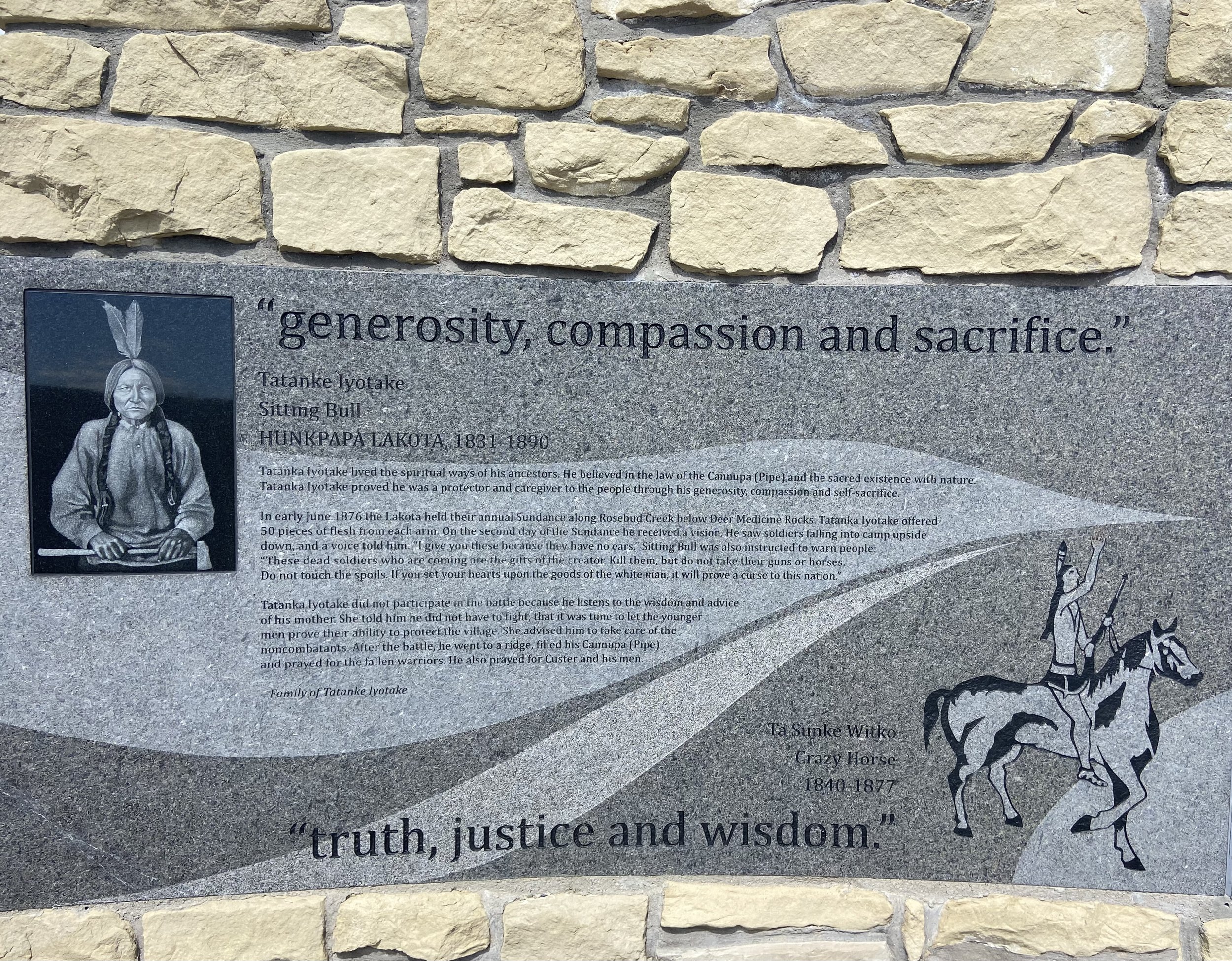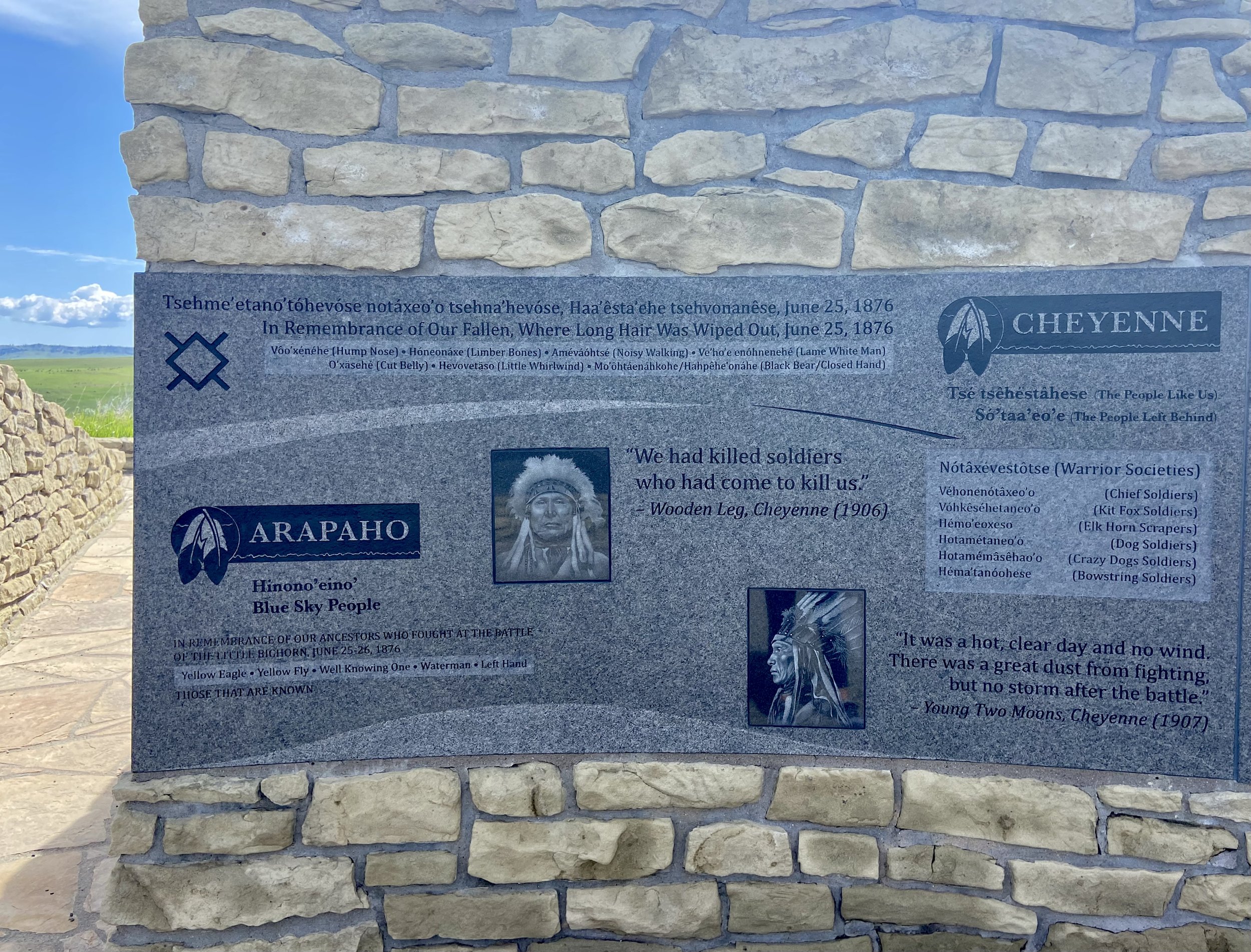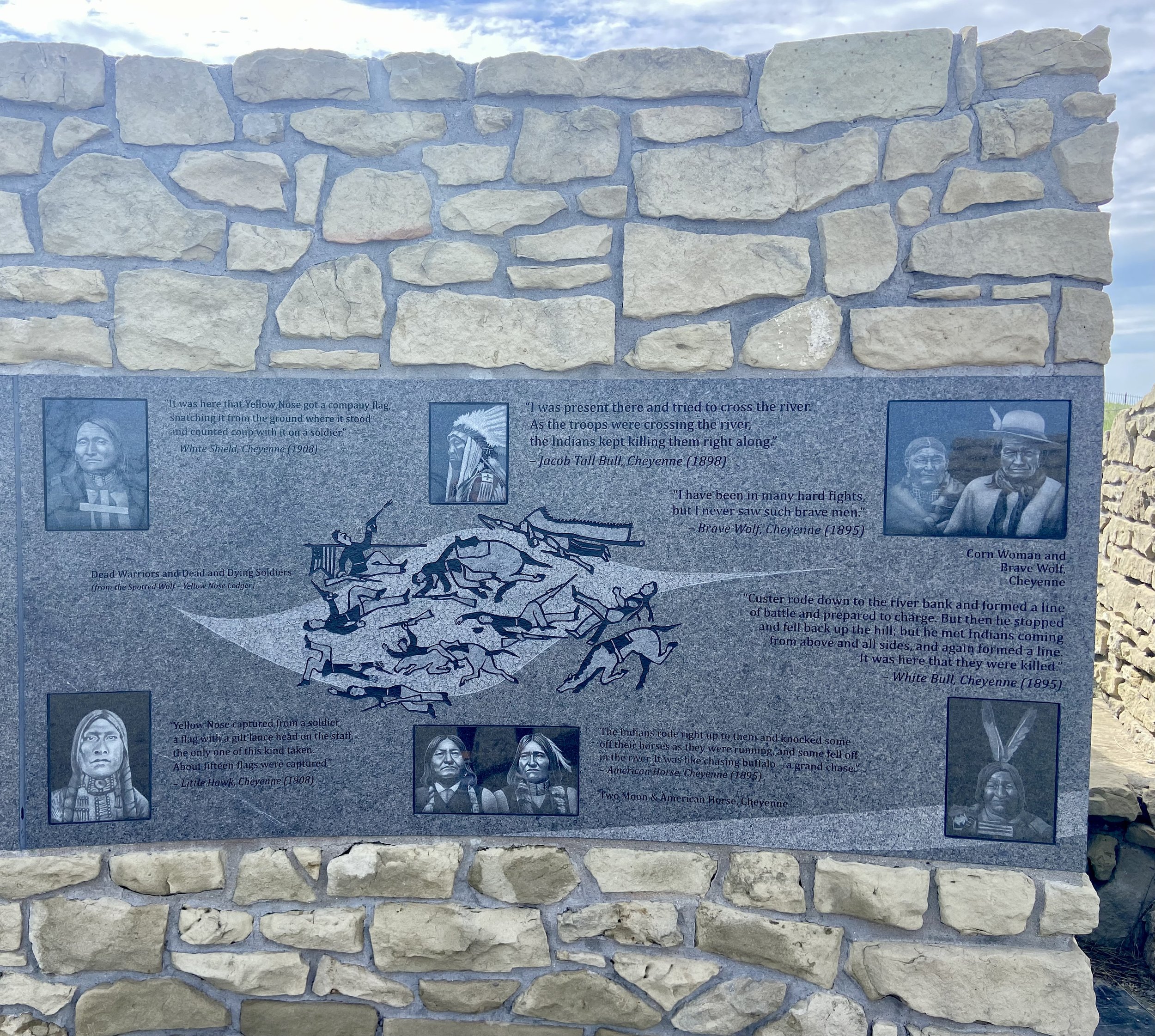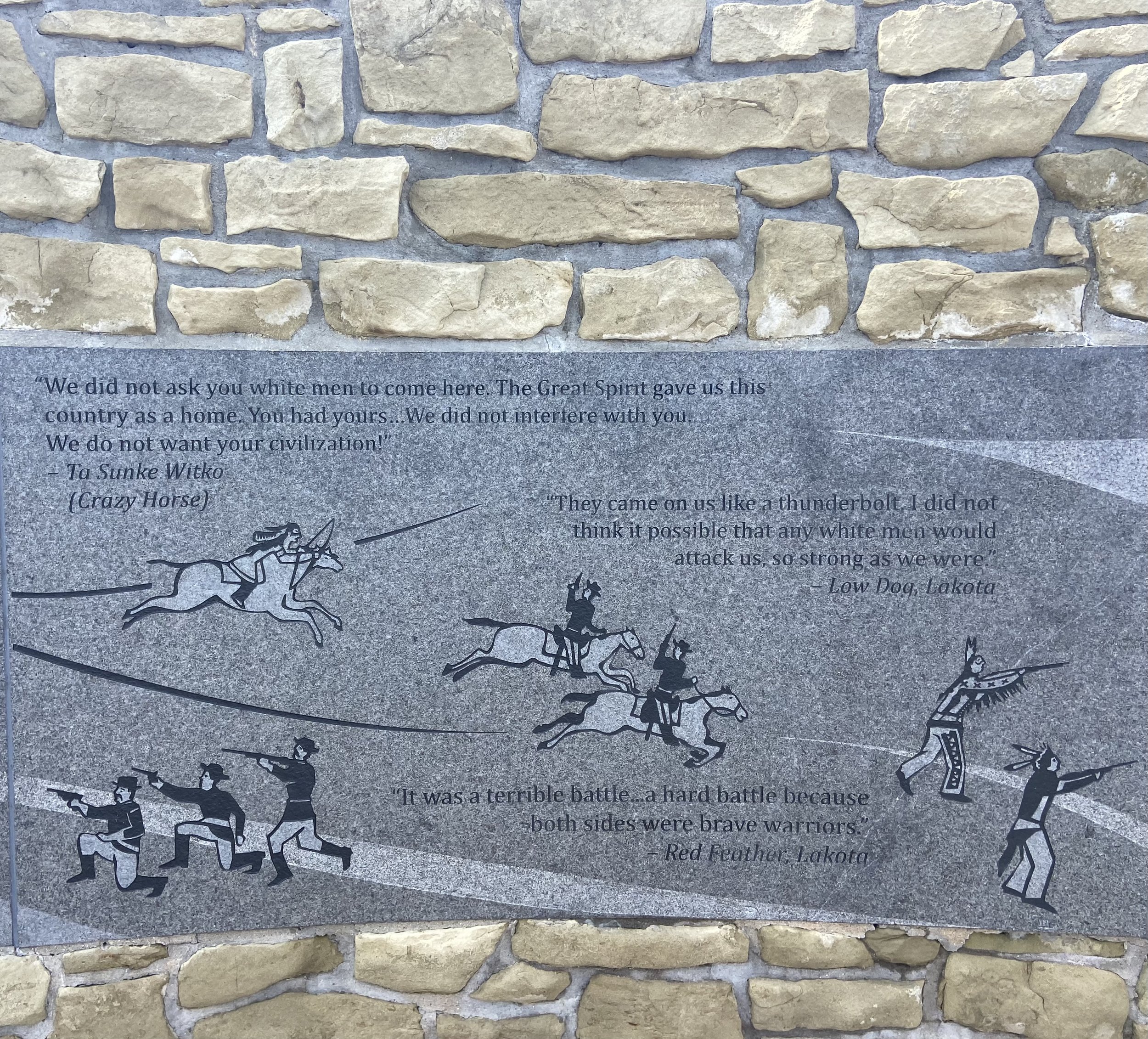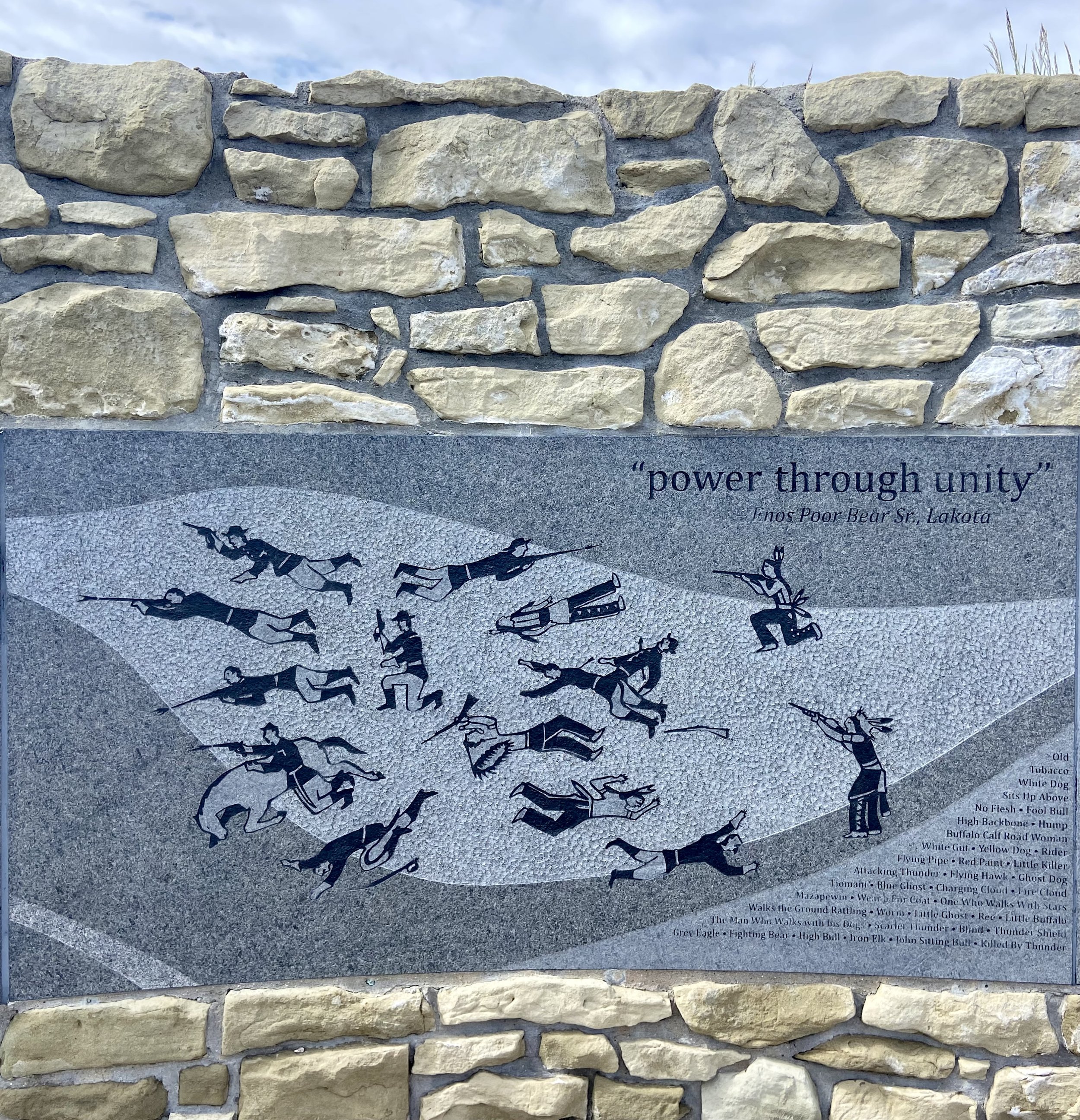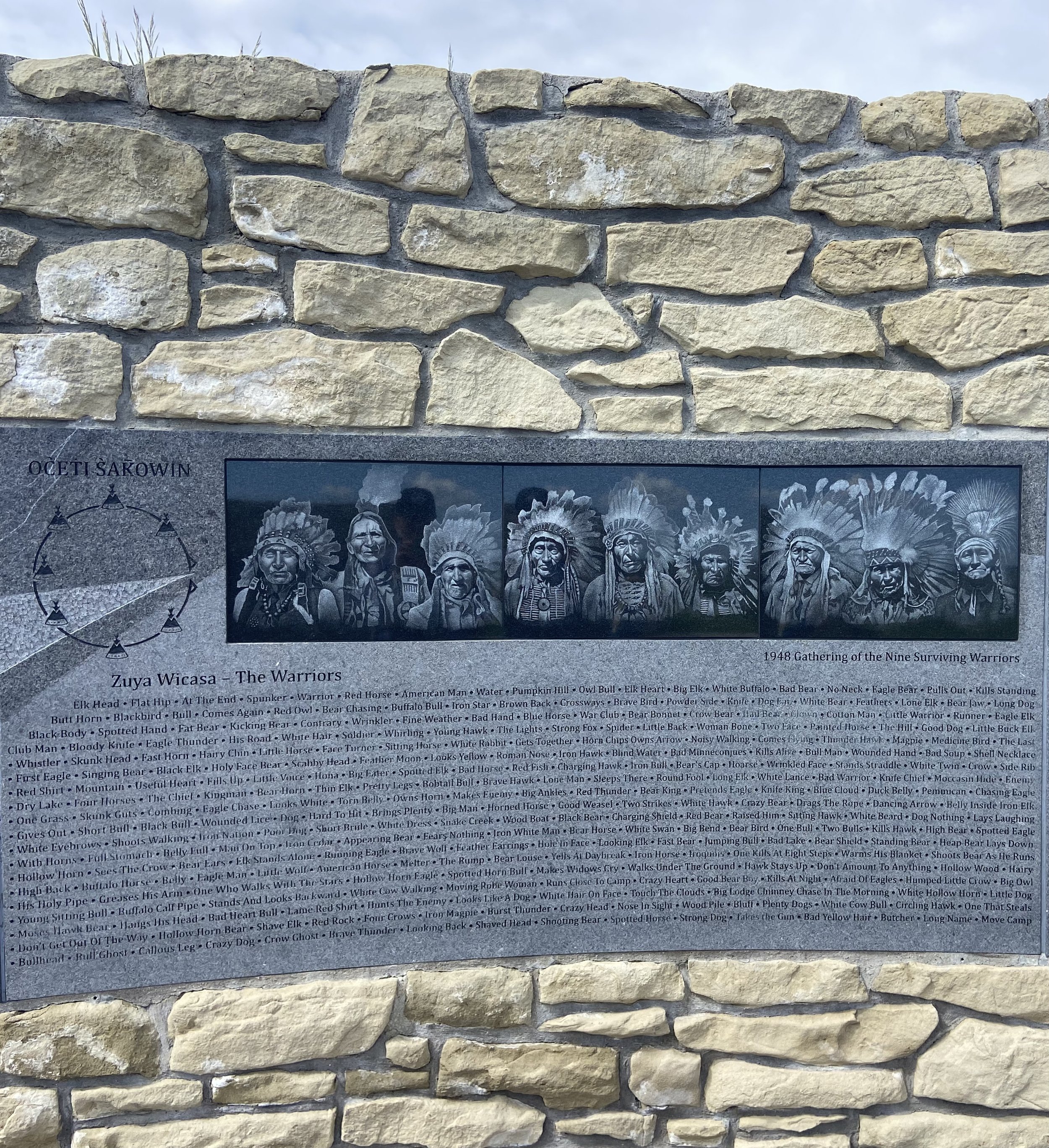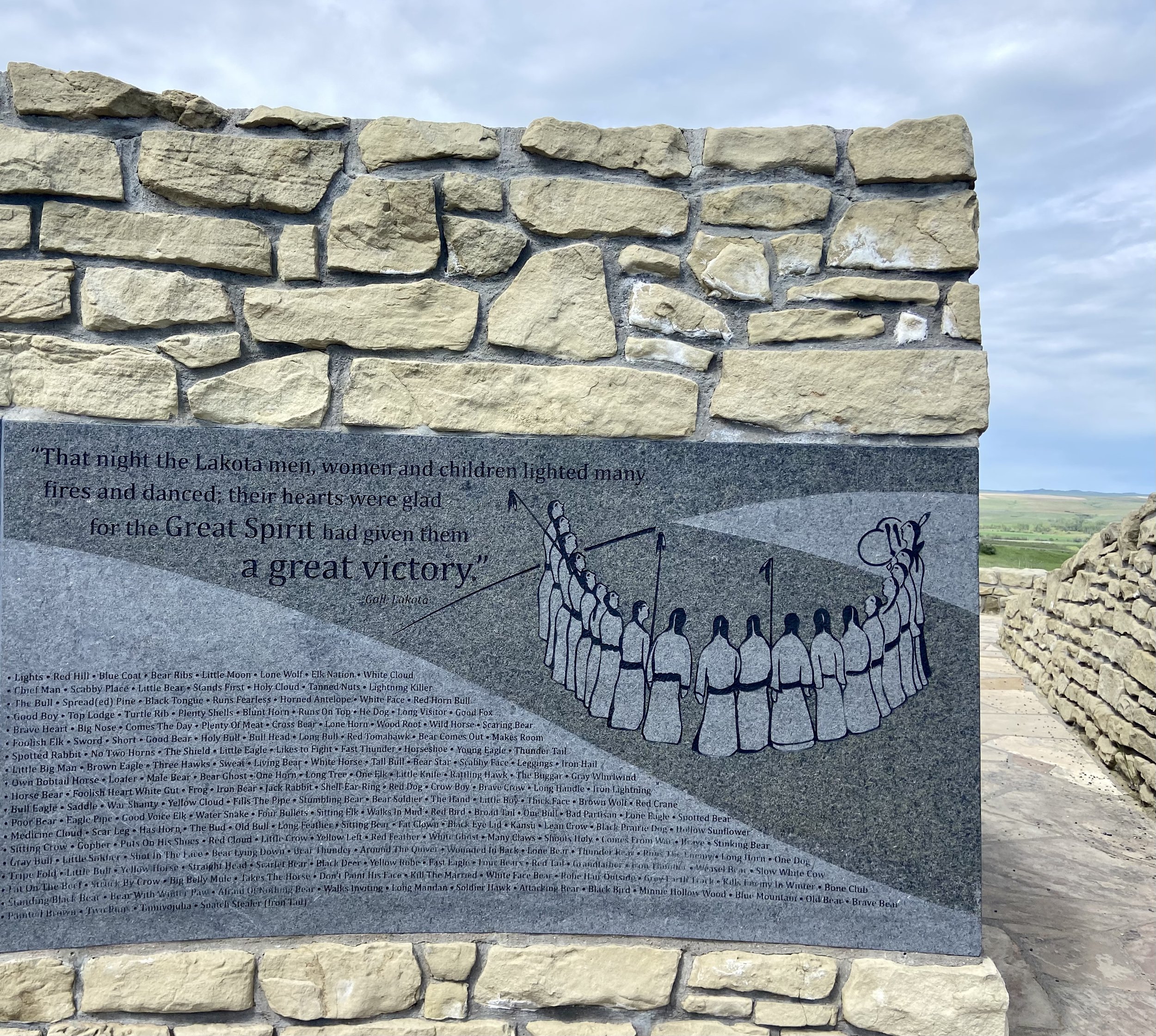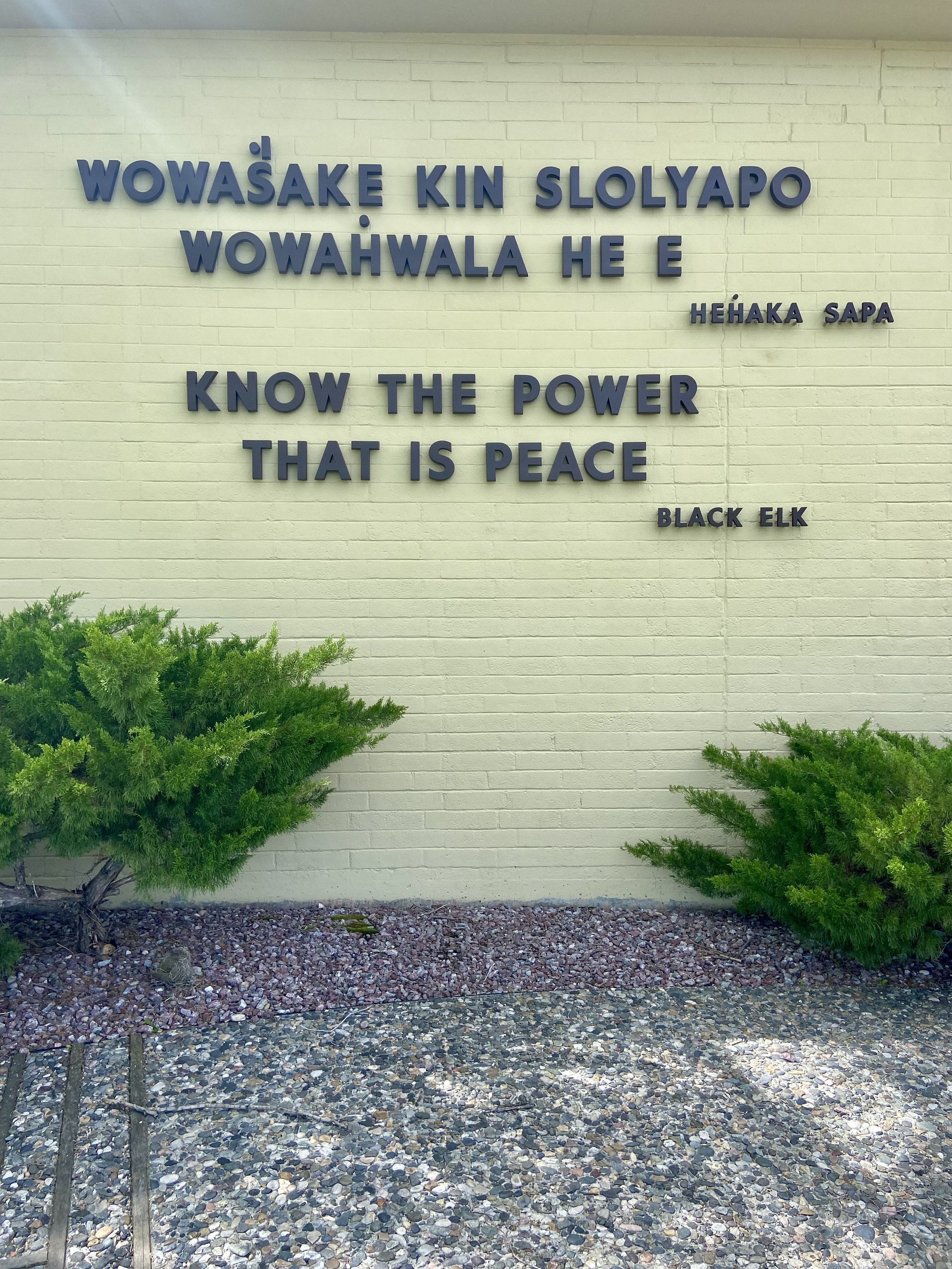Little Bighorn Battlefield National Monument
First, in tribute to Portland’s newly minted DAVID KENNEDY DAY, in honor of his birthday, we celebrated him today in Montana.
"If this memorial is to serve its total purpose, it must not only be a tribute to the dead; it must contain a message for the living...power through unity..." — Enos Poor Bear, Sr., Oglala Lakota Elder
Our first stop on our Montana/Wyoming/South Dakota swing for Mak to see Devils Tower, as a nod to his Senior Year Theatre New Works project, was a Little Bighorn Battlefield National Monument. I wanted to see this sacred American Indian site pay tribute to those that fought for their land that was eventually taken from them. Although the park does start with the white graves of the US Calvery that have died in this battle, plus many others. “
“The Indian Memorial commemorates the sacrifice of the Arikara, Apsaalooke, Arapaho, Cheyenne, and Oyate tribes in the Battle of the Little Bighorn as they fought to protect their diverse values and traditional way of life. The theme of the memorial, "Peace Through Unity", carries the commemoration further by acknowledging the need for cooperation both amont Indian tribes and between tribal governments and the federal government. The relevancy and significance is further highlighted when one considers it is the only memorial to the Native American experience mandated by Congress and constructed with federal funds.”
“A place of reflection. This area memorializes the US Army's 7th Cavalry and the Lakotas and Cheyennes in one of the Indian's last armed efforts to preserve their way of life. Here on June 25 and 26 of 1876, 263 soldiers, including Lt. Col. George A. Custer and attached personnel of the US Army, died fighting several thousand Lakota and Cheyenne warriors.”
“The battle was a momentary victory for the Lakota and Cheyenne. The death of Custer and his troops became a rallying point for the United States to increase their efforts to force native peoples onto reservation lands. With more troops in the field, Lakota hunting grounds were invaded by powerful Army expeditionary forces determined to conquer the Northern Plains Indians. Most of the declared "hostiles" had surrendered within one year of the fight, and the Black Hills were taken by the US government without compensation.”

